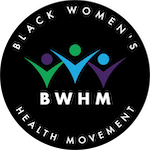Coffee: Helpful or Harmful? How Much is Too Much & Healthy Delicious Alternatives
Stress is coming by special delivery as Christmas approaches. Grabbing an extra cup of coffee or two is an easy go-to — especially during this busy time. However, that additional coffee means more caffeine. So, the question becomes, when does that seemingly innocent cup of coffee become a cause for concern?
When it comes to caffeine, the average cup of coffee contains about 95 mg. Safe consumption of caffeine caps at about 400 mg per day. Symptoms from the effects of caffeine in coffee range from “feeling the jitters” to digestive issues, headaches, a racing pulse, and even sleep disruption.
Coffee, one of Americans favorite drinks, despite those potentially negative side effects, provides many health perks, such as:
- Helps brain function
- Improves energy levels, memory and mood
- Fights depression
- Boosts metabolic rates, improve physical performance and helps burn fat
- Contains antioxidants and nutrients like B2, B5, manganese and potassium, and magnesium and niacin
- Can possibly reduce the risk of diabetes, Alzheimer’s, Parkinson’s, dementia, cirrhosis, strokes and certain types of cancer
Healthy Coffee Alternatives
Finding an alternative routine that supports the health benefits coffee provides is a big task. Below are some options that may help you to substitute or reduce your coffee intake.
- Chicory Root tastes like coffee when roasted and brewed, but it’s caffeine free and very high in beneficial fiber inulin that supports a healthy gut and may aid digestive issues.
- Golden Milk is a blend of ginger, cinnamon, turmeric and black pepper that is caffeine free and may have anti-inflammatory properties.
- Lemon Water is calorie and caffeine free, improves your immune system and is a protectant from the sun. A cup of water combined with the juice of a half a lemon provides 10% of your vitamin C RDI. When adding mint, basil, cucumber, watermelon and other herbs and fruits, the health benefits increase.
- Rooibos Tea has a fruit taste and is caffeine freeandslightly sweet. It provides plenty of antioxidants with a low iron absorption. It is also known to reduce the risk of some cancers and heart disease.
- Apple Cider Vinegar ismade from fermenting crushed apples and is also caffeine free. It’s known to reduce blood sugar levels and may assist with weight loss.
- Kombucha is a fermented black tea that contains probiotics, acetic acid and antioxidants.
Your body’s unique need for certain health properties, nutrients, and more are all important to your health, which, unlike coffee, the above alternatives can provide. Although coffee has many health benefits, there are other healthy gains that coffee cannot provide like a probiotic, insulin resistance, and most importantly, the absence of caffeine. By incorporating other healthy drinks into your diet, you can enjoy the same boosted energy levels and increased mental focus that coffee provides along with blood sugar regulation and immune and digestive system support.
Eat, drink and be merry, this season, but remember that what you put in your body can improve your overall health and minimize worry and anxiety as you celebrate this holiday season and beyond.
Before You Begin a New Health Regiment
The BWHM encourages you to weigh the benefits or limitations of each alternative. Check with your doctor to be sure you are aware of any potential side effects. Also, seek medical advice before using any of the listed options above to ensure that the ingredients in the alternative options work well with your overall health and/or medicines.


